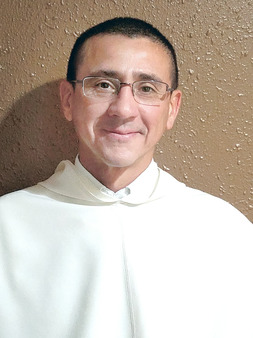
A platform that encourages healthy conversation, spiritual support, growth and fellowship

NOLACatholic Parenting Podcast
A natural progression of our weekly column in the Clarion Herald and blog

The best in Catholic news and inspiration - wherever you are!
Be perfect just as your heavenly father is perfect
-

By Father Manuel Solorzano
Hispanic Apostolate
Dearest brothers and sisters: We have reached the end of the fifth chapter of St. Matthew, which some have called Jesus’ “follies.” The dynamic remains the same: “You have heard it said ... but I tell you.”We could play this game – Which are the most common phrases we use and which are the ones the Gospel uses? For example: You get more from asking than from giving; the more you give, the more you lose; the law is made, now let’s make the loophole. Let’s attempt to pass them through the filter of Jesus’ words.
In Jesus’ time, and perhaps even today, one of those sayings is: “An eye for an eye, a tooth for a tooth.” Jesus tells us: “Do not resist an evildoer. On the contrary, whoever slaps you on the right cheek, turn the other cheek; if anyone wants to sue you and take your tunic, hand them a cloak as well; whoever forces you to walk a mile, go with him two; give him who asks of you, and do not turn away from the one who wants to borrow.”
Quite the picture – turn the other cheek, give the cloak, walk two miles and give loans. This text is an exaggeration, and putting them into practice is nonsense.
It’s OK to be realistic, but the first reading of Leviticus reminds us: “Be holy, because I, the Lord, am holy.” We are called upon to live in humility; those who seem weak are the strongest.
When we don’t value our rights, don’t confront those who aggravate us or receive slaps on our cheeks when we share, give and loan, it’s like St. Paul said in the second reading: “Let no one deceive himself. If anyone among you considers himself wise in this age, let him become a fool, so as to become wise.” Wisdom, then, consists in being compassionate and merciful. It’s not in vengeance, but in meekness, that we were taught in the Beatitudes.
But the game continues: “You’ve heard it before: love your neighbor, hate your enemy. But I tell you: love your enemies and pray for those who persecute you, so that they may be children of your heavenly father,” for he “makes his sun rise on the bad and the good and causes rain to fall on the just and the unjust.”
This is incredible – the culmination of loving and praying for your enemies. But, we never say “no water for the enemy,” as the rain and sun can reach him.
Identifying our enemies, either on a personal or social level, is the cause of many of our wars and feuds, occasionally created by the influence of the media and environment. Forgiving others is the essence of our being.
We have reached the end: “For if you love those who love you, do you deserve a reward? Don’t sinners do that? And, if you greet only your brothers, what makes that extraordinary? Don’t pagans do the same thing? Therefore, be perfect, as your heavenly father is perfect.”
The whole chapter and the Christian life are summarized in Leviticus: “Love your neighbor as yourself,” and also what St. Paul asks the Corinthians: “Don’t you know that you yourselves are God’s temple and that God’s spirit dwells in you?” If one were to destroy God’s temple, God would destroy him; because God’s temple is holy, and that temple is you.
People and neighbors are God’s temple. From this perspective we can better understand these words. Simply revisit Genesis: “He made us in his image and likeness.” Returning to holiness is a lifelong task. Let’s ask the Lord, to help us look with different eyes, to change the expressions we use, especially those that are not very Christian, and to reintroduce the values that St. Matthew has given us.




